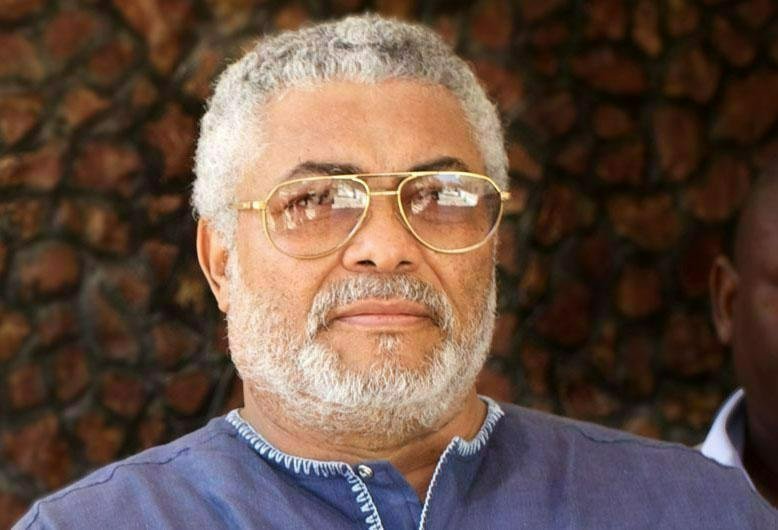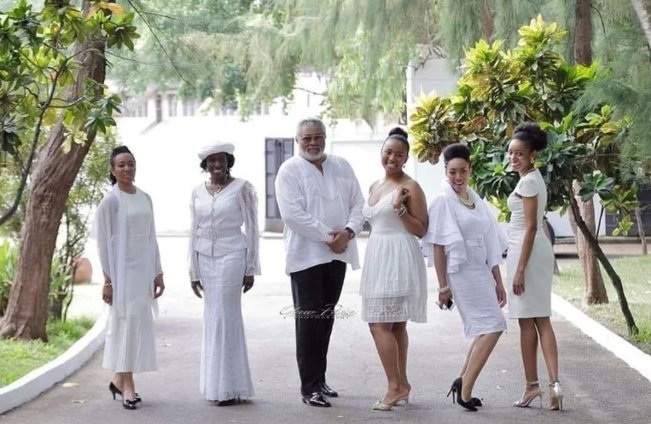Echoes of a Life Remembered
Celebrating a legacy of love and remarkable stories that inspire us to treasure every moment.




The Life and Leadership of Jerry John Rawlings: Ghana's Longest-Serving Head of State
Jerry John Rawlings, born on 22 June 1947 and died on 12 November 2020, was a Ghanaian military officer, aviator, and politician.
He briefly led Ghana in 1979 and then from 1981 to 2001. Initially leading as a military ruler until 1993, he later became a democratically elected president, serving two terms. Rawlings remains Ghana’s longest-serving leader, having ruled for 19 years.
He rose to power as a flight lieutenant in the Ghana Air Force through a coup in 1979 after an earlier failed attempt the same year.
After handing over power to a civilian government, he led another coup in 1981, establishing the Provisional National Defence Council (PNDC). In 1992, he resigned from the military, founded the National Democratic Congress (NDC), and won democratic elections as the first president of the Fourth Republic. He was re-elected in 1996 and completed his final term in 2001.
Rawlings supported his vice president, John Atta Mills, as his successor in 2000. He later served as the African Union envoy to Somalia and died in 2020 at age 73, receiving a state funeral.
Rawlings was born in Accra to Victoria Agbotui, an Anlo Ewe, and James Ramsey John, a British chemist. His father returned to Britain in 1959. Rawlings attended Achimota School and a military academy in Teshie. He was married to Nana Konadu Agyeman and had four children: Zanetor, Yaa Asantewaa, Amina, and Kimathi Rawlings. He was also the uncle of footballer Junior Agogo.
After completing secondary school in 1967, Rawlings joined the Ghana Air Force. His name was officially changed to John Rawlings during his application. He trained in Takoradi and graduated in 1969, becoming a pilot officer and later a flight lieutenant.
He was noted for his flying skills and earned the Speed Bird Trophy. Rawlings grew concerned about corruption and loss of discipline in the military, which shaped his critical views of the government.
After the 1979 coup, he engaged with students at the University of Ghana and embraced leftist ideas.
In 1979, Rawlings led a coup against General Fred Akuffo's government but failed and was sentenced to death. He was freed by soldiers on 4 June 1979 and successfully led another coup. He then became the chairman of the Armed Forces Revolutionary Council (AFRC), overseeing the execution of senior military officers, including former heads of state.
The AFRC governed for 112 days and held elections, after which Rawlings handed over power to Hilla Limann in September 1979. However, on 31 December 1981, Rawlings staged another coup, citing weak civilian leadership and economic decline. Several prominent figures, including judges and military officers, were abducted and killed during this second military rule.
After the 1981 coup, Rawlings dissolved the Limann government and formed the PNDC. He hosted several revolutionary leaders from other countries and reversed Ghana’s boycott of Libya, allowing the national football team to win the 1982 African Cup of Nations.
The PNDC lacked economic planning experience and implemented strict price controls and trade reforms that led to a crisis in 1983. Forced into structural reforms, Rawlings agreed to elections in 1992, beginning Ghana’s return to multiparty democracy.
Rawlings formed the National Commission on Democracy to guide the democratic transition. A new constitution was adopted in 1992, and in the November elections, Rawlings won 60 percent of the vote.
His party, the NDC, dominated several regions. His political rivals, including Adu Boahen and former president Limann, received significantly fewer votes. Rawlings benefited from strong party structures, state media control, and limited financial competition due to imposed campaign limits. He launched public works and increased public workers’ salaries before the elections.
Opposition parties challenged the election results, citing voter irregularities and bias. However, international observers such as the Commonwealth Observer Group found the elections largely free and fair, though other organizations pointed to flaws in the voter register and processes. Despite criticisms, Rawlings remained in power with broad support and influence.

